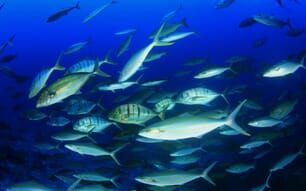Delegations from the EU, Canada, China, Denmark (in respect of the Faroe Islands and Greenland), Japan, the Republic of Korea, Norway, Russia and the US also attended.
EU Fisheries Commissioner Karmenu Vella said: "Safeguarding a healthy marine ecosystem in the central Arctic Ocean is a priority in the EU’s Arctic policy and will fill an important gap in the current ocean governance system.
"I am very encouraged by the strong desire and willingness of all parties to take measures to prevent unregulated commercial high seas fishing in the central Arctic Ocean. "
At the moment, most of the Arctic high seas are not covered by international conservation and management rules. While the area currently does not see any commercial fisheries activity, it is likely to become more attractive as the Arctic sea ice cover melts. The Arctic region is warming at almost twice the global average rate.
The EU has long championed taking a responsible approach towards Arctic marine resources, while respecting the rights of indigenous peoples. Since 2009, the EU has maintained that commercial fisheries in the Arctic high seas should not begin until a science-based and precautionary management regime is in place.
Most delegations to the talks prefer a “stepwise” process to regulating fisheries in the area. According to this approach, countries would first set binding interim measures to prevent unregulated fisheries. A second step could see the establishment of one or more regional fisheries management organisations or arrangements.
Last week's meeting followed up on a first exploratory meeting in Washington DC in December 2015 and a first round of negotiations between 19 and 21 April. The third round of negotiations will take place in November.

